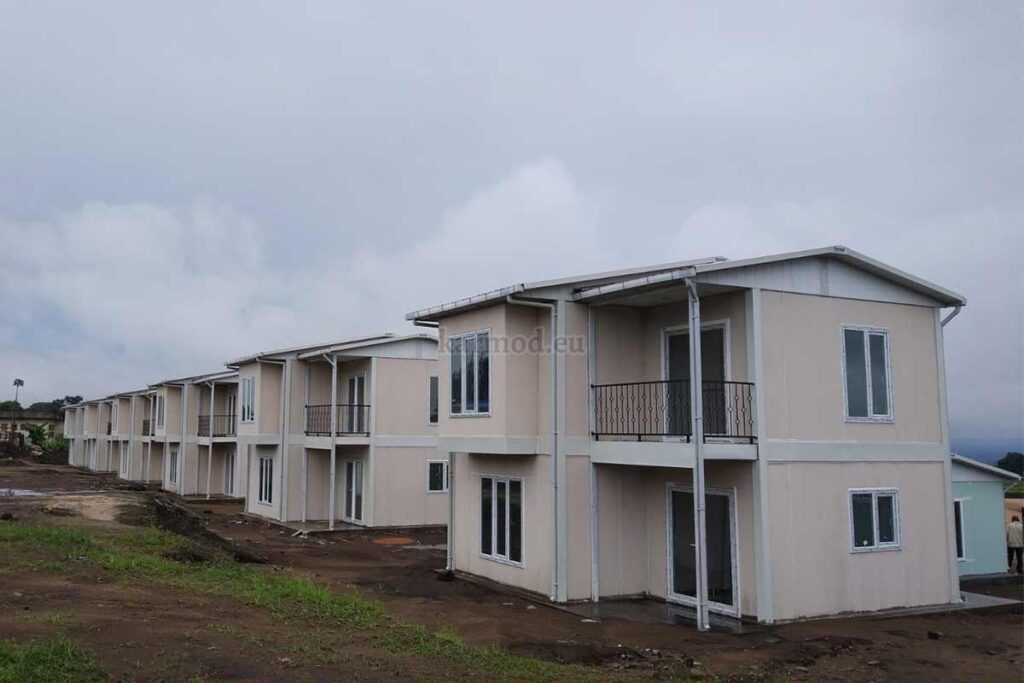
The future of modular housing: What’s next for homes?
As the world evolves, so does our approach to housing. The future of modular housing is one of the most exciting developments in the real estate sector. With increasing urbanization and a growing need for sustainable living, modular homes present an innovative solution. They are gaining traction due to their efficiency, affordability, and adaptability. But what does the future hold for this housing trend?

What Are Modular Homes?
Modular homes are prefabricated structures made in sections or modules. These modules are constructed in a factory setting, ensuring precision and quality. Once completed, they are transported to the construction site and assembled. This method reduces construction time and minimizes waste, making it a sustainable choice for modern living.
Advantages of Modular Homes
Speedy Construction
One of the primary benefits of modular homes is the speed of construction. Since modules are built in a controlled environment, they are not subject to weather delays. This allows for a faster build time compared to traditional homes.
Cost-Effective
Modular homes are often more affordable than their traditional counterparts. The controlled factory setting reduces material waste and labor costs, ultimately lowering the overall price.
Sustainability
Sustainability is at the heart of the modular housing revolution. With minimal waste and the ability to incorporate eco-friendly materials, modular homes are a greener option for those looking to reduce their carbon footprint. Learn more about making your modular home climate resilient from climate resilient modular housing.
Challenges Facing Modular Housing
Perception Issues
Despite their benefits, modular homes often face perception challenges. Many people still associate them with low-quality or temporary structures. Educating the public about the quality and longevity of modern modular homes is essential.
Financing and Insurance
Financing and insuring modular homes can be more complex than traditional homes. Lenders and insurers may require additional information or have specific criteria for modular structures.
Technological Advancements in Modular Housing
Technology plays a significant role in the future of modular housing. From smart home integrations to advanced construction techniques, technology is enhancing the efficiency and comfort of modular homes. Discover more smart gadgets for your modular home at smart gadgets for modular homes.
Modular Housing in Urban Development
As cities continue to grow, modular housing offers a viable solution for urban development. Its ability to provide quick and efficient housing solutions makes it ideal for urban areas. Explore the role of modular housing in urban development at urban development and modular housing.
The Role of Modular Housing in Sustainability
Modular housing contributes significantly to sustainability efforts. By reducing waste, optimizing energy use, and using sustainable materials, modular homes align with global sustainability goals. An in-depth analysis of modular housing’s role in sustainability can be found at modular’s role in solving the housing crisis.
Future Trends in Modular Housing
Eco-Friendly Designs
The future of modular housing will see a rise in eco-friendly designs. Incorporating solar panels, green roofs, and rainwater harvesting systems will become standard.
Customization and Personalization
As technology advances, the ability to customize and personalize modular homes will increase. Homeowners will have more options to create a space that reflects their personal style and needs.
Integration with Smart Home Technology
Smart home technology will become an integral part of modular housing. From automated lighting to security systems, these homes will offer enhanced comfort and convenience.
Conclusion
The future of modular housing is promising. With its numerous benefits, including sustainability, affordability, and speed of construction, modular homes are set to become a staple in modern living. As technology continues to advance, the possibilities for modular housing are endless. For more insights on preparing your land for a modular home, visit preparing your land.

FAQs
What is the lifespan of a modular home?
Modular homes can last as long as traditional homes, often 30 to 100 years, depending on maintenance and materials used.
Are modular homes more energy-efficient?
Yes, modular homes are designed to be energy-efficient, often featuring better insulation and energy-saving technologies.
Can modular homes be customized?
Absolutely! Modular homes offer a high degree of customization, allowing homeowners to personalize their living space.
This article contains affiliate links. We may earn a commission at no extra cost to you.